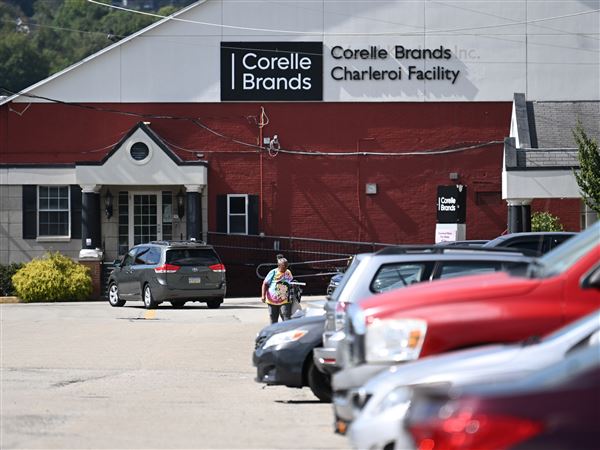A 20 percent rate increase in his long-term care insurance premiums in October was bad enough, David Rivera said.
But the clincher came in the letter he received about the new rate: His insurance carrier, Genworth Life Insurance Co., planned to seek at least 150 percent more in premium increases over the next six to eight years for coverage that Mr. Rivera bought nearly 20 years ago for long-term care for his wife, Clara, 67, and himself.
“The letter is really meant to scare people,” said Mr. Rivera, who is 73 years old and lives in West Mifflin. “A lot of people want to do the right thing and not be a burden to their families. I was trying to be responsible about our care.”
Long-term care policyholders faced with painful rate hikes are in a bind. Canceling coverage because of rising premiums could mean forfeiting money that was paid over the years to the carrier or accepting skimpier benefits. Keeping the coverage means swallowing rates that keep rising.
But the only wonder may be why Mr. Rivera’s rate hike wasn’t higher.
In its third-quarter report to shareholders, the Richmond, Va.-based Genworth — which recorded a loss of $34 million from long-term insurance year-to-date — said it had received approval from state agencies for average rate increases of 53 percent year-to-date.
And more rate increases are on the horizon. For the year, Genworth had submitted 53 rate hike filing requests with state agencies, affecting $335 million in premiums, according to a report accompanying the financial results. Some have been granted, while others are still waiting for approval.
All together, Genworth has lost $3.1 billion on long-term care insurance business. “We continue to lose money on these older policies each year — losses we will never recover,” spokeswoman Julie Westermann said in a statement. “We continue to file for premium rate increases to bring these older policies closer to break-even.”
For policyholders who don’t want to pay the premiums anymore, the company provides a paid-up policy equal in value to what has already been paid, so the consumer has some coverage for long-term care expenses, she said.
Pennsylvanians are feeling the sting of those rising rates. Genworth is the biggest long-term care insurer operating in the Keystone state, with more than 49,500 members here.
Behind the rate hikes is a market that’s collapsing. Genworth is among a decreasing number of companies selling insurance to cover medical care provided outside the hospital.
Last year, for example, long-term care insurer Penn Treaty of Allentown was forced into liquidation by state regulators because its assets no longer covered its liabilities, Pennsylvania Insurance Commissioner Jessica Altman said.
“Many of the assumptions that were used, which were believed to be accurate, weren’t accurate,” Ms. Altman said. “The products need to be higher priced in order to cover the cost of long-term care.”
The problems hit from many sides, including years of low interest rates that cratered insurance companies’ investment earnings and overly optimistic assumptions figured into calculations about the cost of long-term care.
Some brokers have been advising clients to skip long-term care insurance in favor of fixed annuities with long-term care features or new life insurance plans that can be used to pay out-of-hospital medical expenses in retirement.
In response to the market squeeze, some long-term coverage carriers are seeking sharply higher rates, like Genworth, while others are simply dropping out.
“It’s terrible,” said Ed Auble, principal at Paoli, Pa.-based Auble Financial, who has sold long-term care insurance for three decades. “Now, I feel like I might as well be talking about buggy whips. This is the worst I’ve seen it.”
About 100 companies nationwide sold stand-alone long-term care insurance in 2002, according to the National Association of Insurance Commissioners.
Now, there are only 17, which includes 10 companies selling policies in Pennsylvania.
Depressing the market are assumptions about long-term care that were made long ago when many policies were written.
For one thing, more claims were filed than were projected because members are living longer than anticipated. In addition, fewer people than expected dropped the coverage before receiving benefits, experts say.
Also, a decade of low interest rates eroded investment earnings that are used to pay claims.
“The overall financial performance of our long-term care insurance business depends primarily on the accuracy of our pricing assumptions, including for morbidity and mortality experience, persistency and investment yield,” Genworth wrote in its 2017 annual report.
“Financial performance on older policies issued without the full benefit of this experience has been worse than initially assumed in pricing of those blocks.” The company’s strategy is to “pursue significant premium rate increases” in the future.
Genworth and other carriers are just now seeing the results of actuarial errors made years ago, said Richard Sabo, principal of Gibsonia-based RPS Financial Solutions.
“The industry has been imploding because they sold a ton of policies and they mispriced them,” Mr. Sabo said. “They have a financial mess.”
In Mr. Rivera’s case, Genworth offered four options to soften the premium increase, including trimming benefits and paying a higher premium to keep rates flat through 2028, an option that he wound up choosing.
His annual premiums have risen 123 percent since he took out the policy 16 years ago, from about $900 to $2,014, and he’s miffed over what he sees as the company’s failure to take responsibility for its miscalculations.
“If the numbers were actuarily wrong, it’s not the customer’s fault,” he said. “It’s the company’s fault.”
Kris B. Mamula: kmamula@post-gazette.com or 412-263-1699
Correction, posted Jan. 7, 2019: References to Genworth’s report in the third quarter have been corrected to reflect that some of the figures were for year-to-date results. In addition, the premium frequency has been corrected.
First Published: January 7, 2019, 1:00 p.m.
















